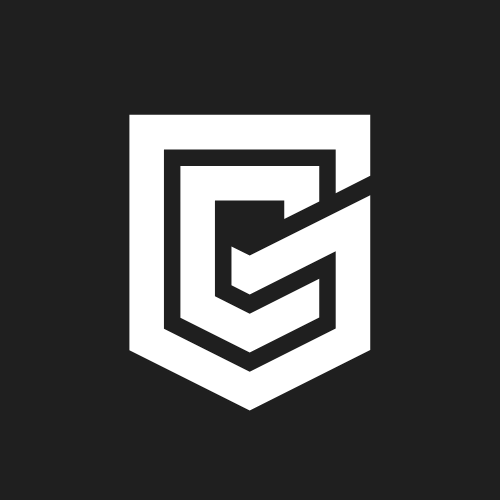AI & XR Upskilling for Reality Labs Professionals
Overview
In collaboration with product leaders from Meta’s Reality Labs division, my L&D team created several synchronous and asynchronous learning solutions aimed at onboarding new product managers and retail associates, as well as helping to close existing knowledge and performance gaps of their audiences.
Much of the training I helped manage and design fueled the onboarding experiences for employees at Meta’s flagship store they launched in the San Francisco area.
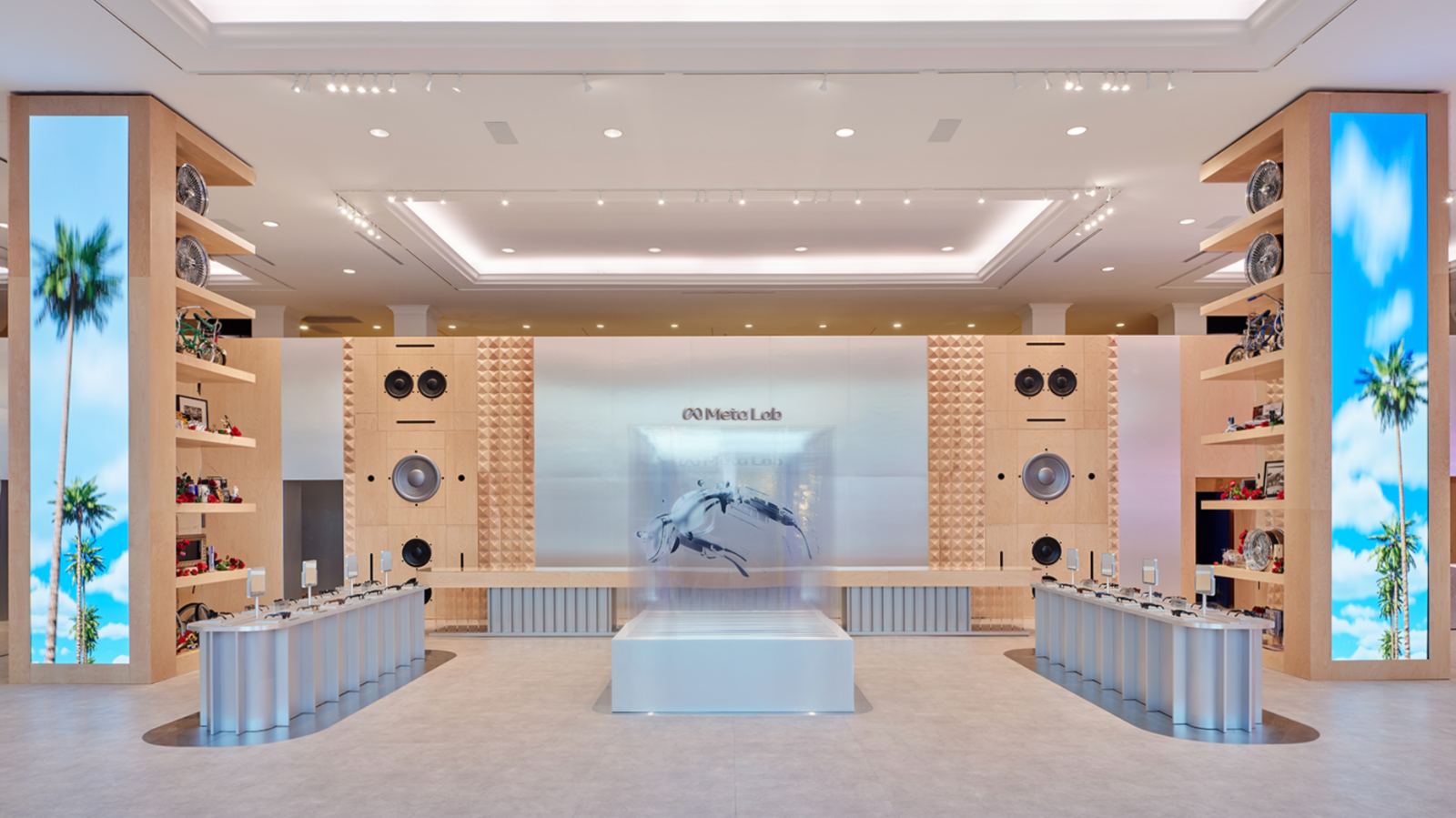
Needs Analysis
For new and future Meta employees, we analyzed the breadth and depth of knowledge they needed to successfully perform the functions of their job. This included a deep understanding of the mixed reality software and hardware being sold by Meta, both online and in-person. We then researched the most effective ways we could help this audience apply this knowledge in order to assist, sell to, and troubleshoot with both B2B and B2C customers.
As a major focus for this learning program was the grand opening of Meta’s first retail store, we made sure to align with stakeholders to focus on three areas:
- Need-to-know technical information for Meta employees to be certified experts on VR, AR, and social tech
- Soft skills based around Meta’s core areas they identified as crucial to fostering an amazing customer experience at their store
- Effective teamwork and problem-solving skills needed throughout virtual and in-person shifts
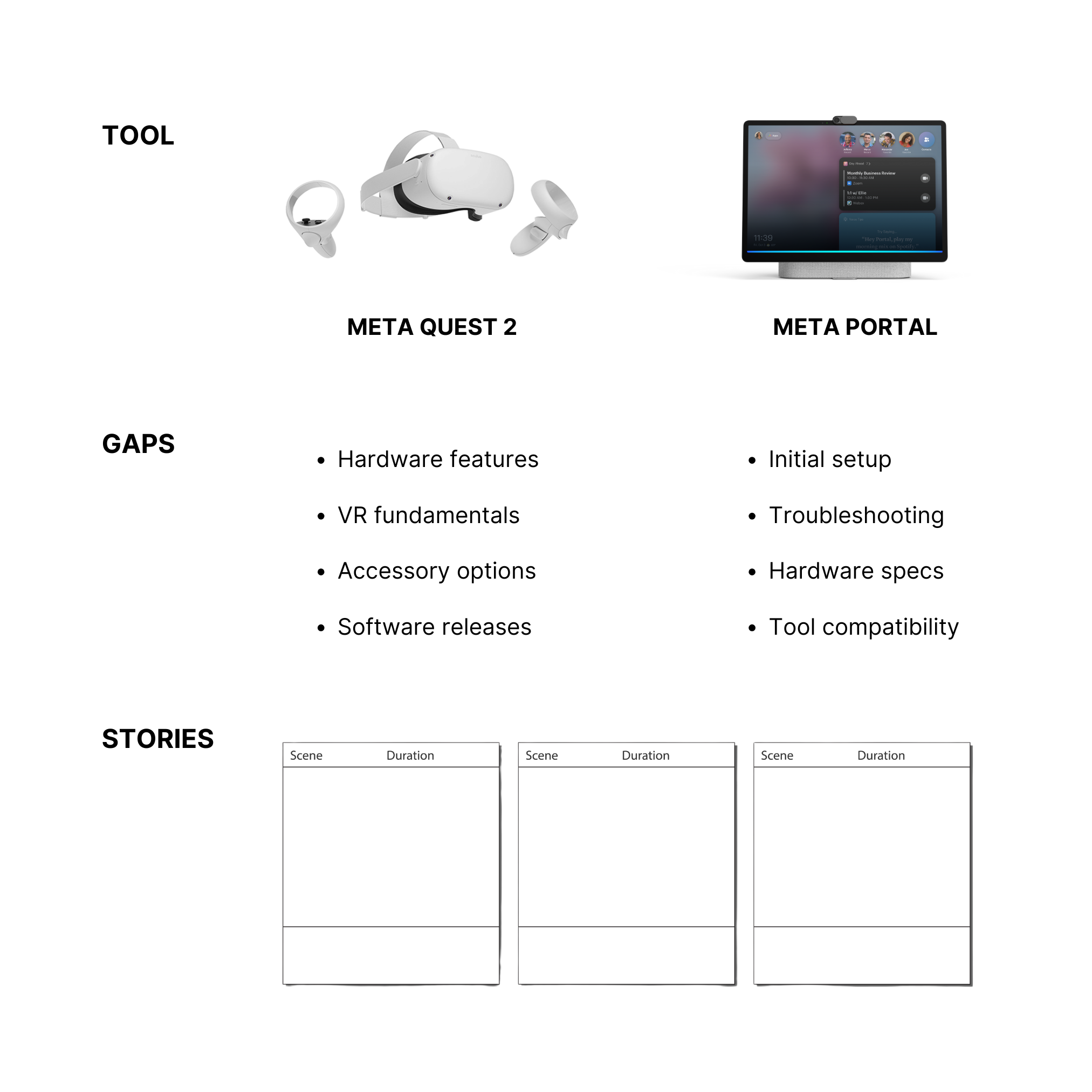
After performing this comprehensive audience and task analysis up front, we completed two-week sprints to design, develop, and test each solution. This helped us iterate effectively, receive and swiftly apply feedback, and overcome hurdles with SME and stakeholder availability.
Design & Development
After performing this comprehensive audience and task analysis up front, we completed two-week sprints to design, develop, and test each solution. This helped us iterate effectively, receive and swiftly apply feedback, and overcome hurdles with SME and stakeholder availability.
Although some of the training content was simple knowledge transfer, much of the learning included real-world scenarios for learners to navigate. Because of this, we started with a design document that included basic details, then immediately storyboarding. This storyboarding was an important step, as we created ‘stories’ related to product scenarios, highlighted the ‘customer types’ Meta’s leadership had identified, and ensured the brand's sales goals and missions were covered.
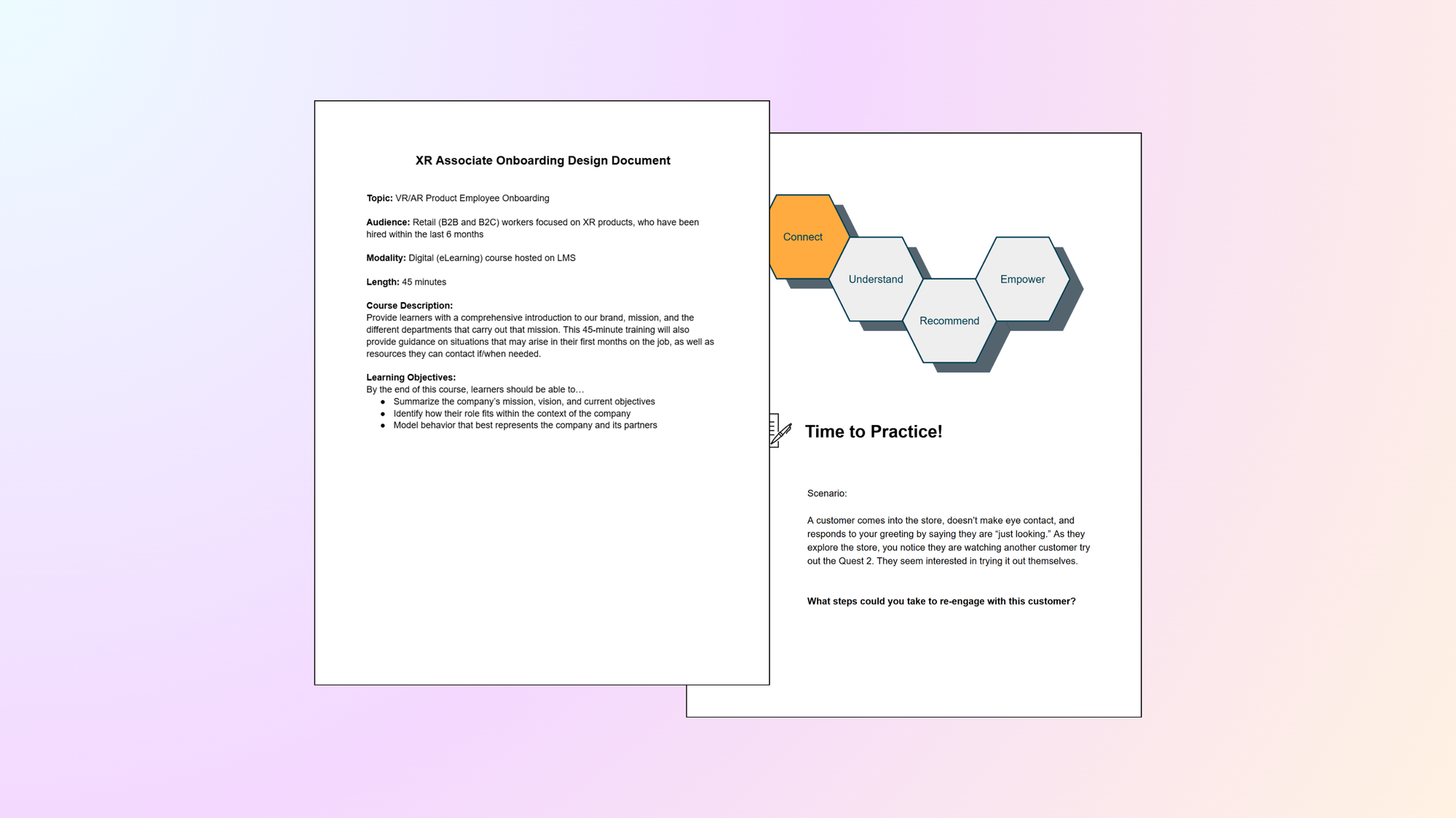
For the sales trainings it was important to have nuanced conversations up-front with stakeholders and SMEs on how learners would use these topics in their day-to-day while interacting with customers and performing sales-related tasks. These trainings dealt with both procedural and declarative knowledge, as they were taught the proper ways to engage with customers during a sale, hit on speaking points, ensure that they maintained an expert-level knowledge of the products and services offered, and professionally handled personal and payment information.
By the end of the design and development phases, the deployed solutions focused on instructing the key features, benefits, and different use cases of products like the Portal (AR) and the Quest 2 (VR), before providing opportunities to practice with simulated customer scenarios that mirrored real-life situations. This resulted in over 10 self-paced product trainings and several instructor-led trainings that covered soft skills such as sales, customer support, and communication.
Results
By pairing a customer-centered foundation with an improvement in technical product expertise, these experiences made up cohesive and comprehensive curriculum deployed to learners within their LMS.
After the curriculums were delivered to learners, we measured their reaction through standard learning surveys. Assessment items were used to measure the learning and required a minimum pass score of 80%. Finally, on-the-job checklists and evaluations were given to supervisors and managers in order to gauge staff's performance of the various technical and non-technical skills at 30, 60, and 90 days following the trainings. Quantitative data included number of customer tickets, average resolution time, and other metrics.
Click to view some of the snippets from the ILT trainings below (content & style altered).
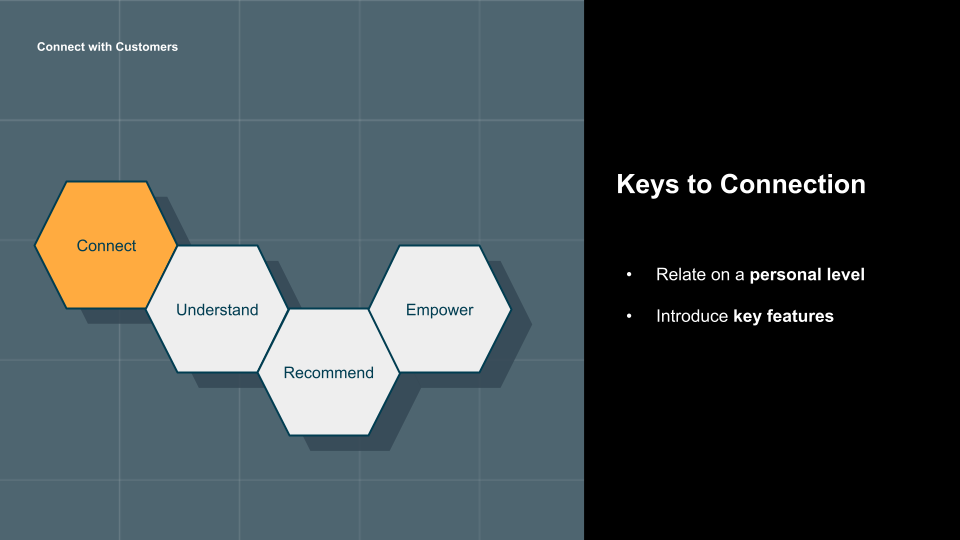
Click to view a demo the course on ‘VR for Fitness’ below (content & style altered).
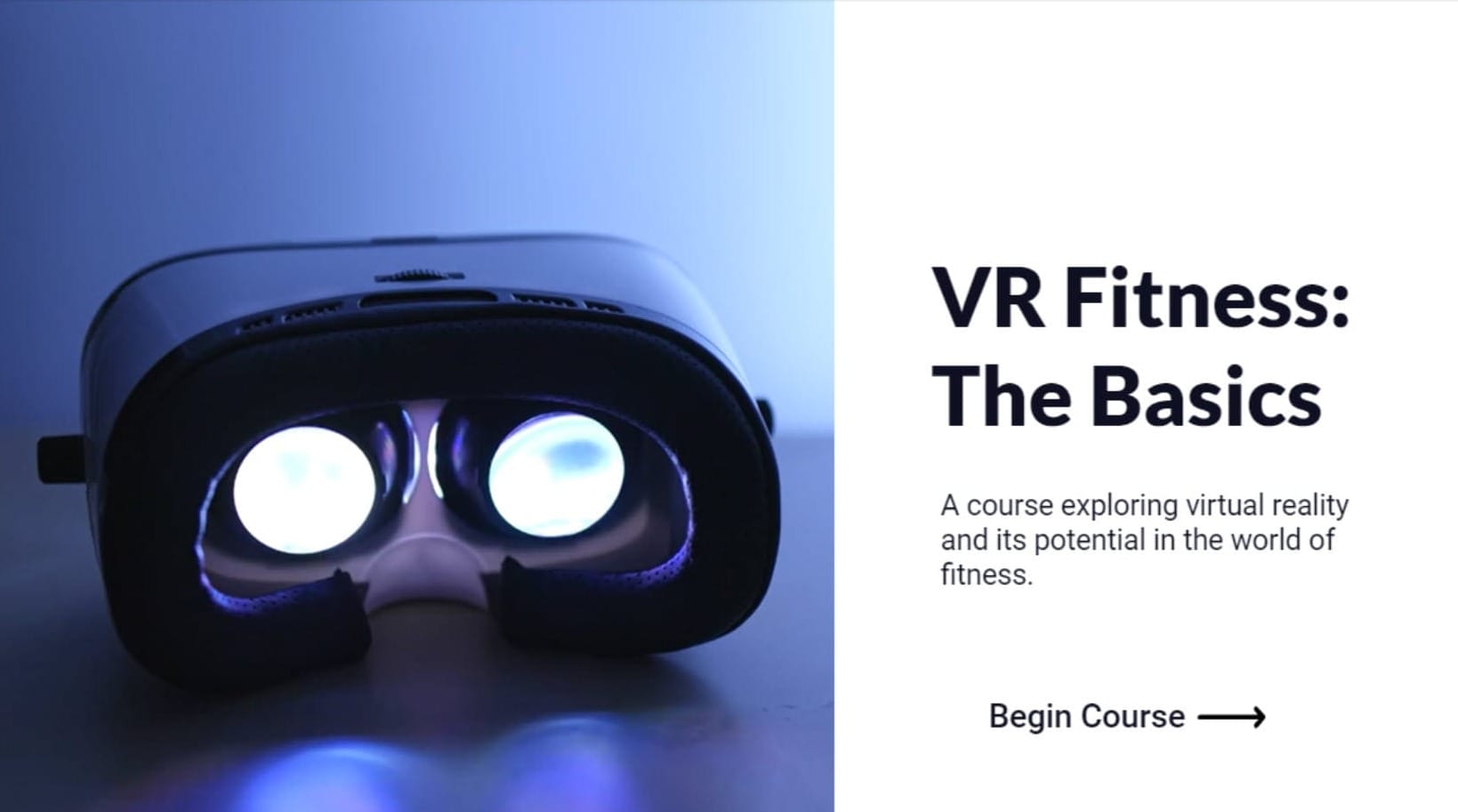
Watch the demo of the Quest 2 technical product trainings below (content & style altered).
